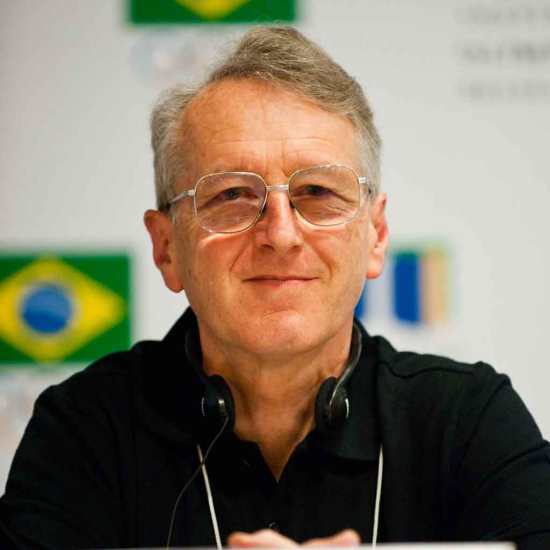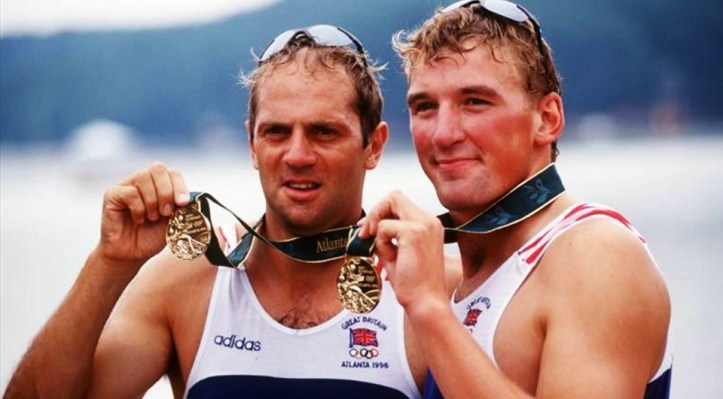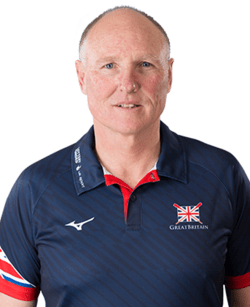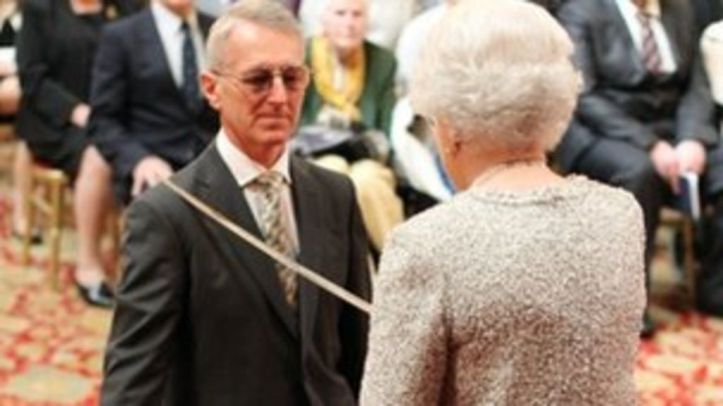
2 January 2018
Chris Dodd writes:
Sir David Tanner’s announcement in early December that he would leave his job as GB Rowing’s Performance Director and International Manager came as both surprise and shock to athletes and coaches gathered at Fortress Caversham training base. Only days before, a group of us at FISA’s conference at the Park Inn, Heathrow, were lamenting British Rowing’s lack of a succession strategy for the super-successful and long-running triple alliance of Tanner and his chief coaches, Jurgen Grobler and Paul Thompson. The prospect was of crisis as Grobler headed for Tokyo 2020 in his seventh decade and Tanner in his sixth.
However, it has turned out that Tanner leaves of his own carefully considered volition, the post he has held for 20 years, during which he has put GB into a commanding position in international rowing across-the-board and, arguably, created the most successful and best-managed programme in British international sport.
Tanner set out as a coach on the muddy Bristol Avon when studying history at Bristol University and then found notoriety when teaching history and coaching a four from Ealing High and Cardinal Vaughan schools that aped the famous Thames Tradesmen crew who set the world on fire in the 1970s when, under Jim Railton, they made the shortest leap from junior to senior team and finished up as part of Bob Janousek’s medal-winning Munich 1976 eight.
Tanner’s crew — John Beattie, Ian McNuff, Robin Roberts (later replaced by Derek Bond, who was in turn replaced by David Townsend) and Martin Cross won junior silvers in 1975 and then sought to continue as a unit. Thames RC’s offer of spending two years trying for the club eight was turned down, but a chance meeting on the towpath found a home for the unit at London RC. The club signed them up as a four and gave them the use of a new Karlisch. They won the Wyfold, and then in 1976 won all but one of their home races. International medals were to follow, effected by training twice a day, which even Janousek’s crew had not managed except for a short period in an Olympic year. Tanner’s mentors were national coach Penny Chuter, Wallingford Schools coach Bruce Grainger and Janousek himself.
Meanwhile, the future performance director was busy rising to a headship in a large Surrey comprehensive and taking up team management in the summer rowing season. By the end of the 1980s, the Amateur Rowing Association (ARA) was at sixes and sevens with its under-funded international team management, so much so that the big clubs, particularly Leander, were going for it alone. Then in 1989, the Berlin Wall fell and East Germany, the powerhouse of Olympic sport, faded away. Leander hired a man who had delivered Olympic gold for the DDR, Jurgen Grobler, to coach the two best oarsmen of the age, Steve Redgrave and Matt Pinsent, to gold in Barcelona 1992, after which the ARA high-jacked him to become the association’s chief men’s coach.

Four years later, the pair won another gold in Atlanta, the only athletes in the entire British Olympic team to do so – an achievement that also highlighted the dire plight of sport in Britain. As a result, Prime Minister John Major launched the sports lottery and David Tanner resigned as a headmaster to take up the post of performance director at the ARA (now British Rowing). Thus began his 20-year single-minded programme to obtain funding for the only federation to deliver gold in Atlanta and take it to the top of international rowing. For once, the rowing governing body was ready with a plan.

Grobler has been in charge of the openweight men ever since and coached golds in every game, including the first of five consecutive coxless fours in Sydney 2000. Tanner’s immediate move in the autumn of 1996 was to entice Mike Spracklen home from North America to coach Britain’s women, resulting in their first Olympic medal, a silver for the Sydney quadruple scullers (Gillian Lindsay, Katherine Grainger, Guin and Miriam Batten). After Sydney, the Aussie coach Paul Thompson, a gold Olympic coach in his country of origin, was hired to replace Spracklen and put in charge of women and lightweights. He has delivered a consistent stream of medals for 17 years.

In his 20 years at the helm, Tanner has built a thoroughly professional programme which reaches to all the international squads. Potential internationals have been snared by nation-wide talent spotting programmes, development coaches have opened pathways from clubs, and men, women, lightweights, under-23s and juniors have received financial and expert support. A formidable group of full- and part-time coaches has been assembled, and the GB squads have had generous funding and training camps as well as experts on tap – doctors, physios, psychologists, chefs and dietitians, shrinks, sports scientists, media trainers and the latest technology for boats and equipment. I asked him once if Grobler and Thompson work for him or whether he works for them. ‘I try to ensure that everyone who works for me can do their job better than I could do it,’ was his reply.
The squads have also benefited from preparative expeditions and research into venues for upcoming regattas. For example, Tanner made several trips to Rio before the Olympics to find a hotel within walking distance of the course and check out the catering. He also took athletes who were likely to make the Olympic team to Rio to experience the razzle-dazzle of the place in advance so that they would not be phased when they arrived for the Games. On the morning of the day after Grobler’s eight won gold, Tanner flew to Rotterdam to support the juniors and under-23s at their championships.
For many years Tanner has also been one of British Rowing’s delegates at the annual FISA Congress, ensuring that the interests of competitors are heard when rules and issues are debated.
The performance director of the past 20 years has had his moments of controversy from time to time, including occasional appeal hearing over selection, disputes over who coaches whom, and a struggle over the relationship with university clubs. The latter came to a head in 2007 when two Cambridge men resisted the policy of UK Sport and GB Rowing to insist on a full-time commitment to the national squad in the pre-Olympic year as well as the Olympic year. The argument is further complicated by the fact that the great majority of Olympic team members are graduates, many of them with second degrees, and the rowing programmes they enter as students are usually of very high quality. In this case, Tanner needed the Cambridge men – Kieran West already had an Olympic gold medal and Tom James was to get one in Athens 2008 – and a compromise was negotiated.
By his own admission, Tanner can be difficult to get along with. He is certainly a control freak, but his dedication to detail earns him respect and has enabled him to take Britain to the top of the tree at the home Olympics in 2012 and to build on that four years later in Rio. Along the way, he has transformed Britain’s international set-up into a replica, in many ways, of the thorough East German system that his chief men’s coach came from. Grobler presumably can’t believe his luck. He rose to the top in the DDR before inheriting Redgrave and Pinsent with his move to Leander, and since then has occupied a hot seat as Sir David has assembled the building blocks of success.

It was the challenge of Rio that persuaded Tanner to stay on after the London Olympics, and it is the challenge of Tokyo that has persuaded him to stop now, rather than walk the talk for another four years.
He leaves his successor well prepared for Japan – a squad replenished after Rio, with funding and organisation in good fettle. He promises not to ghost his successor, being intent on contributing to the wider sporting scene. He may even find time to tune in again to his love of history.
